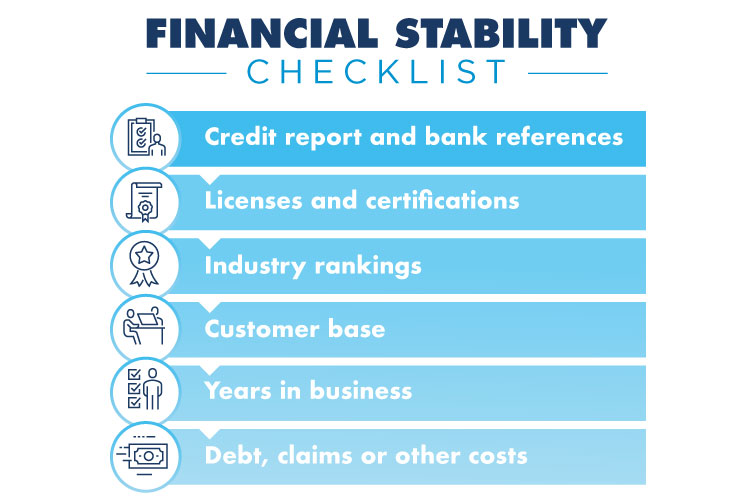How financially strong is your freight partner?
Check out TQL’s tips for evaluating a partner’s stability and credibilityThe financial stability of your transportation partners is critical in an industry that has faced extreme disruption and instability. Your freight partner’s financial strength could be impacted by cargo theft, economic pressures, technology demand and more.
Nearly 88,000 trucking companies and 8,000 freight brokers went out of business in 2023, and the turmoil continued in 2024. The trucking sector lost about 10,000 carriers in the first half of the year, according to TruckInfo.net. As the industry awaits data for the last half of 2024, some experts say industry instability will continue through the entirety of 2025.
The following tips guide shippers in evaluating the financial health of their current and potential logistics providers.
What’s at stake?
As supply chains have become more complex, they’ve also become more vulnerable. Costs associated with delays and failures can be devastating to businesses.
An Accenture study found that disruptions can cost businesses 11% in missed annual revenue growth, or a staggering $1.6 trillion. Damage to brand reputation and the loss of customer confidence are other major considerations.
Some supply chain disruptions are outside of a shipper’s control, but delays and failures caused by partners closing their businesses can be prevented by reviewing the companies’ financial profiles.
Financial stability checklist
Third-Party Logistics companies (3PL) handle multiple supply chain functions for customers. Shippers should evaluate information the 3PL provides as well as data from independent sources. Consider these factors when assessing a potential 3PL partner:
- Credit report and bank references: Check independent resources including Dun & Bradstreet, Moody’s, Standard & Poor’s and industry-specific ratings systems like the produce industry’s Blue Book. Study the payment history for patterns and timeliness.
- Licenses and certifications: At a minimum, any freight broker should be licensed with the Department of Transportation. Other affiliations – such as Transportation Intermediaries Association membership – lend further credibility.
- Industry rankings: Research rankings like Transport Topics’ annual Top 100 freight brokerages list. A consistent spot on this list indicates a brokerage’s financial stability.
- Customer base: Does the company have a diverse portfolio of customers? Is the company financially stable? What about the industry? These performance indicators show a company’s resilience in facing supply chain disruptions.
- Years in business: New brokerages pop up when the market is strong. Make sure your potential partners have been in business for several soft market cycles to ensure their viability following market turns.
Trust the TQL difference
TQL, the second-largest freight brokerage in North America and one of the largest global third-party logistics firms, is committed to credibility, stability and financial strength. We have successfully managed supply chain challenges since 1997.
Named among America’s Largest Companies (Forbes) and the United States’ Best Managed Companies (Deloitte), we serve a large and wide customer base. We maintain elite-level credit, rank at the top of our industry in Dun & Bradstreet and Blue Book ratings and have a Paydex Range of 78-80.
Customers and carriers turn to us daily to solve their transportation needs with competitive pricing, continuous communication and a commitment to do it right — every time.
Through our comprehensive portfolio of logistics services and network of 110,000+ carriers, we move over 3.6 million loads of freight annually. We have 9,000+ employees in 60+ offices nationwide and are dedicated to major investments in technology and talent.
Backed by financial stability and elite-level credit, TQL provides solutions in an industry that has faced supply chain disruptions. Contact your dedicated Logistics Account Executive today or visit TQL.com.










